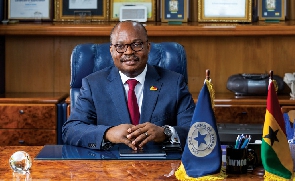Governor of the Bank of Ghana has admonished colleague Governors world wide to implement people centered policies in order for a sustainable post-COVID-19 recovery.
According to Dr Ernest Addison, the enactment of such people-centered polices will protect the recent hard-won human capital gains and prevent long-term damage to the poorer and vulnerable segments of our societies
This was revealed when the Governor of the Bank of Ghana who is also Chair of the Board of Governors of the International Monetary Fund-World Bank addressed a virtual meeting on Thursday, October 15, 2020.
“We are facing the prospect of years of poverty reduction and economic progress being reversed by the pandemic. The shock waves from the COVID-19 crisis could lead to a lost decade for the world’s poorest countries unless they receive urgent help and financial assistance. Fellow Governors, the time to act is now. We need to enact policies that protect recent hard-won human capital gains and prevent long-term damage to the poorer and vulnerable segments of our societies. We also need continued support from the international community to avoid this health crisis becoming a humanitarian crisis,” Dr Addison said.
“As we move out of firefighting mode, we should think about the type of post-COVID world we want to shape. We need a recovery that is people-centered, sustainable, and fair. The COVID-19 pandemic has taught us that a virus knows no borders – we are all in this together, and the global financial safety net is only as strong as its weakest link,” the World Bank-IMF Chair added.
Meanwhile, the IMF has projected that global economic growth will slump by negative 4.4 percent as a result of the impact of the coronavirus pandemic.
The Breton Woods Institution also projected a reduction in global output by 11 trillion by 2021.
Additionally, growth in Sub-Saharan Africa is however predicted to fall to -3.3 percent in 2020 with an effect of pushing the region into its first recession in 25 years.
Some 40 million people on the continent, according to the IMF, are likely to be subjected into extreme poverty in 2020.
Business News of Friday, 16 October 2020
Source: www.ghanaweb.com
Post Coronavirus: BoG Governor urges enactment of people-centered polices
Entertainment












